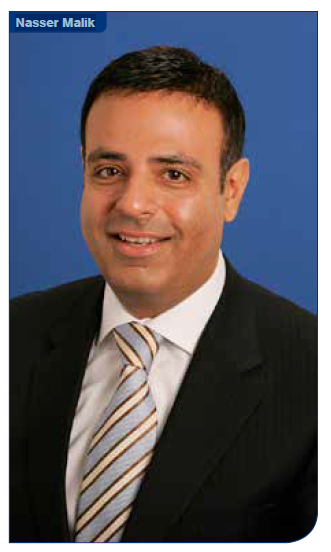The Citi Interview
It is not the first time the bank has received high praise for its project bond business – having previously scooped IJGlobal’s bond arranger award for North and South America in 2019.
“The size and complexity of Citi’s deals merits recognition,” says one member of IJGlobal’s esteemed independent judging panel. “Not only did Citi secure financing, but also structured precedent-making innovative financial products.”
- This interview first appeared in IJGlobal Magazine, to access click here...
In 2020, Citi’s deal highlights ranged from sheer size – in the case of the nearly $8 billion debt capital raise for Galaxy Pipeline Assets – to deal structuring innovations such as a new solar revenue put, mezzanine finance facilities and green bonds. The year also marked the bank’s continued expansion into emerging markets and new subsectors of infrastructure.
“Institutional investors participating in infrastructure as an asset class has been the anchor on which our business has been built,” says Nasser Malik (pictured), managing director at Citigroup Global Markets in New York.
“We do lend to many projects, but we have always been the house that sponsors look to for how they can effectively tap the capital markets.”
The year of 2020 was a year like no other – seeing highly liquid markets contrasted with a historically challenging macroeconomic environment. Citi and its clients had to work through the volatility and uncertainty to close deals such as the financing against John Hancock’s interest in the Exelon Generation portfolio of 30 wind and solar assets across 13 US states.
Despite severe market volatility at the time of the offering – the deal closed on the broader market’s worst day since 2008 – the transaction was over 1.5x oversubscribed and priced significantly inside of guidance, enabling an upsize from the $127 million cover size. Citi acted as sole ratings adviser, sole structuring agent and sole placement agent on the deal.
“It was a year of unusual times, unusual markets and unusual asset classes. These were all variables for how 2020 came together quite uniquely for Citi,” says Malik.
“Notwithstanding a short pause at the very height of Covid-19, when the world just stood back, 2020 continued to see very robust transaction activity in the infrastructure space.”
In another noteworthy deal – Clearway Energy’s refinancing against its 50% interest in a 500MW+ solar project portfolio in Utah – Citi introduced a first-of-a-kind solar revenue put for the US private placement market. The product insures investors and lenders against the risk of potential lost revenues from the project.
Citi also structured the transaction to leverage merchant cash flows via a robust analysis with respect to the balloon at maturity and PPA expiry. Proceeds were used to repay the existing bank backleverage facilities and to pay for swap breakage, transaction fees and expenses, the put premium, and to fund a distribution to the sponsor.
The Clearway deal reflects a wider trend of sponsors utilising nonrecourse financing to leverage minority and joint venture interests in contracted assets.
Another Citi deal from 2020 that cannot go unmentioned is Galaxy Pipeline Assets – the nearly $8 billion debt capital raise (part of which closed in early 2021) to refinance a consortium of infrastructure equity investors’ acquisition of a 49% stake in Abu Dhabi National Oil Company’s gas pipeline assets.
“The scale of the Galaxy deal validated the depth of capital markets for high-quality infrastructure assets,” says David Dubin, head of EMEA project and infrastructure finance, adding that the deal also reflects increasing bond investor confidence in non-recourse financings and infrastructure assets out of MENA. The deal was all the more impressive for attracting strong bank appetite at the time of acquisition and the subsequent capital markets refinancing amidst the Covid pandemic.
Looking ahead, as the world begins to climb out of the grip of the pandemic, the view from one of the premier bond arranging banks is one of a continued path to maturity for the infrastructure asset class. Malik points to growing appetite for emerging markets deals as well as mezzanine financings as a sign of what’s to come.
“The push for renewables and sustainability is creating an openmindedness on the part of institutional investors – you see that in mezzanine transactions and you see that in 144a transactions in emerging markets,” says Malik.
“There’s an increasing comfort in transactions that five years ago would have been pretty foreign to institutional investors. These are non-recourse, they are amortising, they entail thick prospectuses, they are not sovereign or corporate transactions.”
Malik adds: “The future is going to be driven by equity. In the last few years, there’s been a very significant rise of equity capital formation and fundraising and thereby dry powder in the hands of infrastructure funds. They will continue to expand their remit and engage in more creative transactions alongside banks that are harnessing not old school project finance, but rather new school platforms on the capital markets, alongside institutional investor and infrastructure debt funds.”
Request a Demo
Interested in IJGlobal? Request a demo to discuss a trial with a member of our team. Talk to the team to explore the value of our asset and transaction databases, our market-leading news, league tables and much more.


